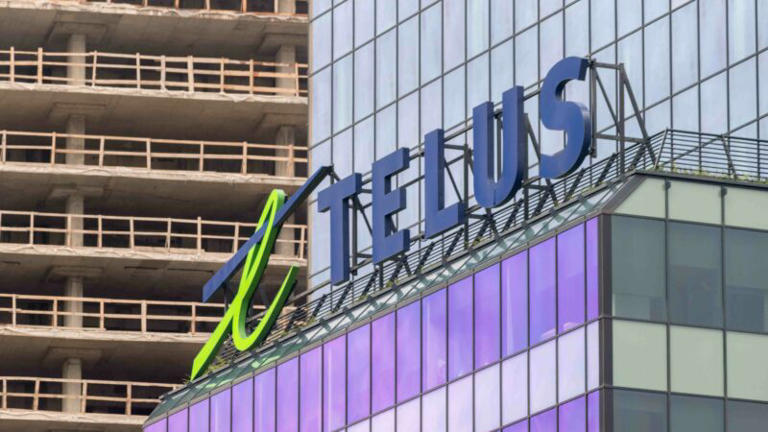Rogers launches 5G mobile plan for low-income Canadians
by MobileSyrup

Rogers announced a new program that aims to make 5G service accessible for more than 2.5 million low-income Canadians.
The company’s ‘Connected for Success 5G Mobile Plan’ will allow eligible low-income Canadians to get a $25/mo plan with 3GB of 5G data (speeds of up to 250Mbps) with unlimited use at reduced speeds of up to 512Kbps beyond the allotment. Additionally, the plan includes unlimited Canada-wide talk and text, and unlimited international text and picture/video messaging sent from Canada.
Alongside the plan, Rogers will offer a ‘no-cost’ Samsung Galaxy A14 or Motorola G 5G smartphone to eligible low-income Canadians. The phones usually cost $386 or $364, respectively, but Rogers will offer them for $0/mo financing (after a bill credit) and $0 down on approved credit with the Connected for Success 5G plan.
Rogers confirmed to MobileSyrup that the program is its own and isn’t connected to a government initiative.
Rogers isn’t the only carrier offering a plan tailored to low-income earners, though it appears the company’s is the only one to have 5G speed.
Telus’ ‘Mobility for Good’ program has a similar $25/mo 3GB plan for low-income seniors. However, Telus’ plan only specifies “high-speed data,” and instead of a free phone, Telus offers a $75 discount off the purchase of a phone from Mobile Klinik. The company also has a program for youth leaving foster care — the plan includes the same data and calling options but is free for two years.
MobileSyrup was not able to find a similar program offered by Bell and has reached out to the company to learn if it offers one.
To put the plan in perspective, there are few in-market offers from wireless providers that come close to matching the $25/3GB plan Rogers has, and none of them include 5G data or a free phone:
- Fizz Mobile – $30/mo for 3GB LTE data with unlimited Canada-wide calling and texting.
- Freedom Mobile – $19/mo 250MB LTE or $24/mo 1GB LTE, both include unlimited talk and text.
- Rogers-owned Fido: $37.50/mo 2GB LTE with unlimited talk and text.
- Telus-owned Public Mobile: $25/mo 1GB 3G with unlimited talk and text.
- Telus-owned Koodo: $35/mo 3GB 3G with unlimited talk and text.
Rogers’ Connected for Success program also offers internet and TV options for low-incoming Canadians.
To access the program, Canadians need to receive eligible support for provincial and/or federal governments. In Ontario, for example, eligible support programs include the Resettlement Assistance Program (RAP), Guaranteed Income Supplement (GIS), Connecting Families Program, Rent geared to income (RGI), Ontario Disability Support Program (ODSP), or Ontario Works (OW). You can learn more about eligible programs here.
In a press release about the program, Rogers highlighted its other affordability efforts, including the company’s program offering 48-month device financing through its credit card. Rogers markets this as a way to lower monthly phone payments “by up to 50%,” but the program appears to be a way to bypass the CRTC’s restrictions on phone contracts that are longer than two years.
You can learn more about Rogers’ Connected for Success 5G Mobile Plan here.
Header image credit: Shutterstock
Telus ‘assessing’ CRTC’s fibre internet decision, company exec tells Canadian Telecom Summit

Telus says it’s still assessing the impact of a decision forcing it to provide competitors with wholesale access to its fibre network.
On Monday, the Canadian Radio-television and Telecommunications Commission (CRTC) ruled that Bell and Telus have six months to provide internet service providers (ISPs) in Ontario and Québec access to their fibre-to-the-premises (FTTP) networks.
Bell responded quickly, stating it would cut over $1 billion from its 2024 and 2025 capital expenditure plans.
While Telus has yet to take an official stance, its silence doesn’t necessarily equate to a positive reaction.
Stephen Schmidt, the company’s vice president of telecom policy and chief regulatory counsel, was critical of the CRTC and singled the commission out for “doing things that no other regulator on earth is left doing.”
“Time has moved on for peer regulators, and they’re focusing on privacy, on 6G, on AI, on digital markets, etc. But the commission is a quarter century into doing something that’s a quarter century old,” Schmidt said during a panel at the Canadian Telecom Summit (CTS) Tuesday.
Several organizations looked at the decision with a bittersweet sentiment. Matt Hatfield, the executive director of OpenMedia, a non-profit group that, in part, focuses on internet affordability, called the decision “a lifeline for small ISPs.”
However, the CRTC’s decision was too late to save several such companies.
“Finally making the right decision today can’t bring the small ISPs we’ve lost back — all the more so if it proves to be only temporary, local relief,” Hatfield said. “Much more is needed.
ISPs currently serve 47 percent fewer customers than they did two years ago, the CRTC said in its decision.
In the last two years, Telus took over ISPs Start.ca and Altima. Bell acquired Ebox and Distributel. Cogeco, which is not subjected to the CRTC’s decision at this time, acquired Oxio.
A second issue with the decision is its focus on Ontario and Québec.
Samer Bishay, the CEO of Iristel, said the decision provided more questions than answers.
“This is not going to change the landscape. It’s not going to provide affordable internet service to Canadians,” Bishay said on the CTS panel. “This looks to me like maybe a step, a baby step, in the right direction, but it’s nowhere near what was needed to be done many years back.”
The ruling is part of a larger wholesale internet review the commission launched in March.
Image credit: Shutterstock
No comments:
Post a Comment